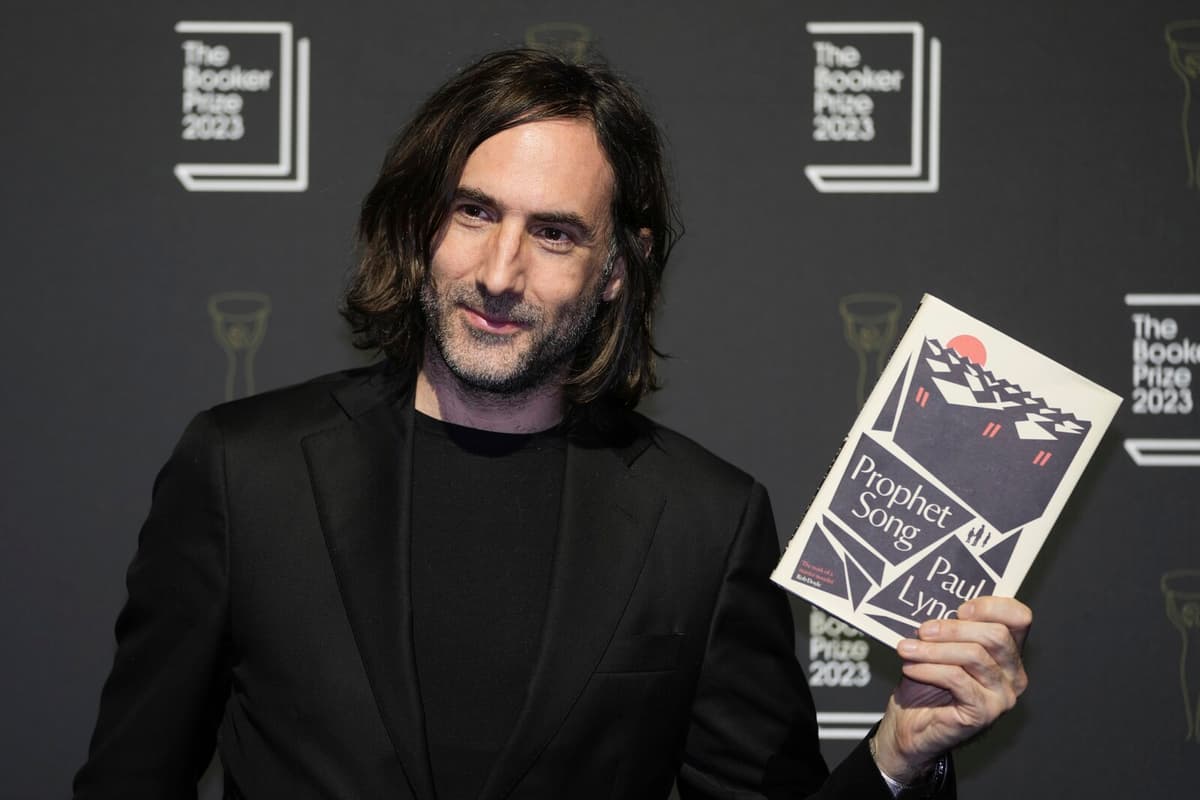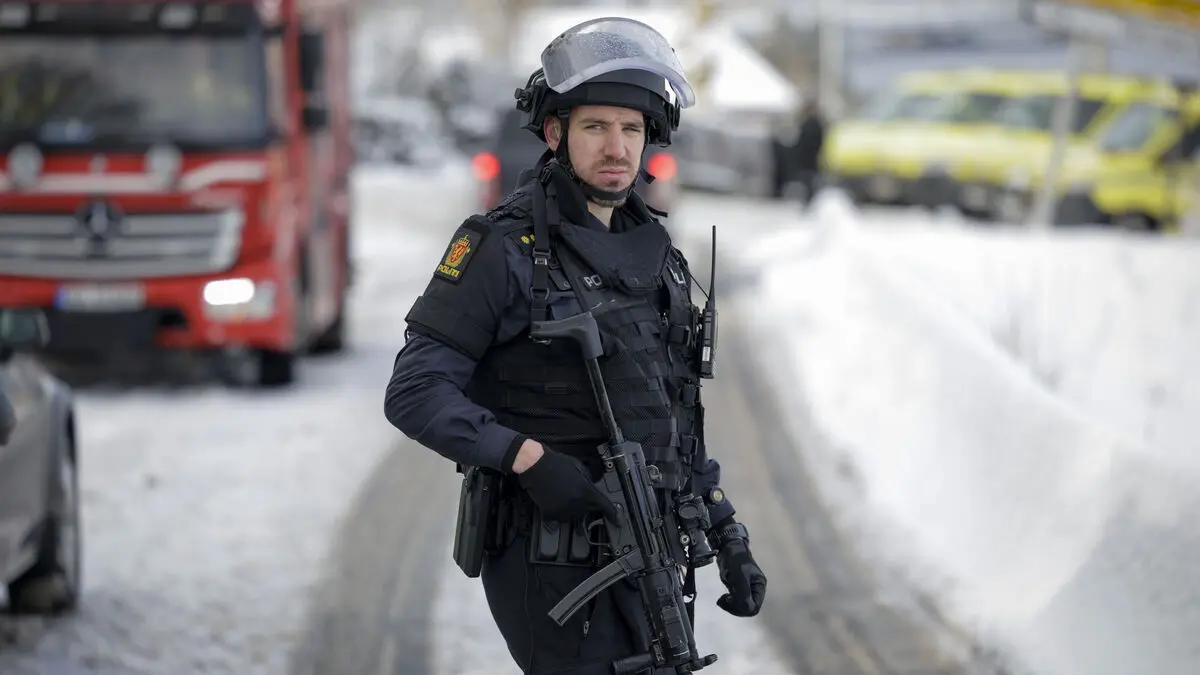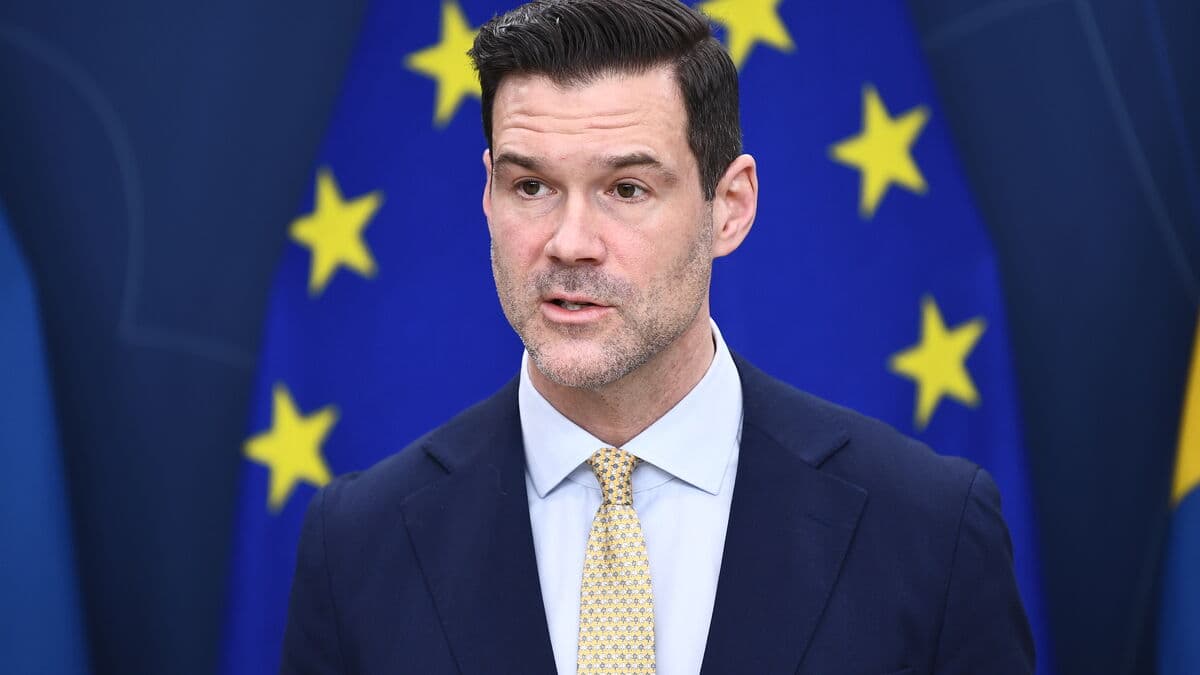The Irish author Paul Lynch has started receiving SMS from friends in the USA, who, after Donald Trump's takeover, are anxiously wondering "is it time to leave the country?". Perhaps because Lynch's simulation of a liberal democracy's collapse has eerie parallels to the present time.
The story revolves around Eilish, a mother of four, whose husband works in a trade union. One day, he is suddenly arrested, and she is left alone with four children and a demented father, while society becomes increasingly authoritarian and repressive. Yet, she doesn't flee.
We all want to believe that the world will continue as we know it. People have their eyes fixed on their phones and tell themselves that it doesn't matter with Trump, or the USA's right-wing, and that everything will continue as usual, but it's obvious that's not the case, says Paul Lynch.
The Little Person
He wrote the first page without a clear idea of the book's plot, but realized afterwards that his thoughts had revolved around Trump, the growing nationalism in Europe, Brexit, and the war in Syria. The same year, 2018, he read Herman Hesse's "Steppenwolf" from 1927 with growing recognition.
But it's the little person rather than politics that Paul Lynch focuses on here. Eilish has her hands full driving children to school, keeping teenagers at home, and making sure there's milk in the fridge. She trusts that common sense will prevail.
But the book is a Trojan horse, and step by step, you end up in the same position as those you've been watching on the news all your life.
Paul Lynch shows how limited free will is under major world events. Eilish makes practical decisions all the time, but "also reaps the unforeseen". Leaving one's home is also incredibly difficult, argues Lynch.
You don't leave until you're forced to, until everything that makes you who you are is taken away from you.
Human Nature
Above all, Paul Lynch wanted to explore an existential dimension. Suffering is part of the human condition, he claims, and it's ongoing. But many in the West are used to it happening somewhere else.
It's not surprising to see Mariupol or Gaza turn to ashes on TV. That's what humans do to each other. But as a citizen, I feel enormous anxiety over the accelerating development.
Born: 1977.
Lives: In Dublin.
Family: Two children, 6 and 9 years old.
Career: Debuted in 2013 with "Red sky in morning", and has since written five novels. The latest, "Profetens sång", was awarded the Man Booker Prize in 2023.
Last read: Iris Murdoch's "The Sea, The Sea" which won the Booker Prize in 1978. "The latest Swedish novel I read was 'Renheten' by Andrzej Tichý. I thought it was bold. I'm also a big Lukas Moodysson fan and watch 'Tillsammans' every year since I saw it in the cinema."
... the significance of books in times of unrest:
My personal belief is "poetry changes nothing", as Auden said. Many important books have changed the world, but you can't aim to write such a book, I think. Much political fiction in the last ten years knows the answers to its own problems. They formulate complaints that can be solved. But for me, life's problems can't be solved, because they have to do with sorrow. And sorrow is what underlies everything, it's the human condition.
... culture in the information technology era:
Culture was once a cathedral where we could meet ourselves. A gigantic mirror, where we could understand the human condition. But culture has been downgraded to entertainment. And entertainment has now been downgraded to distraction. We're living in the era of distraction.






